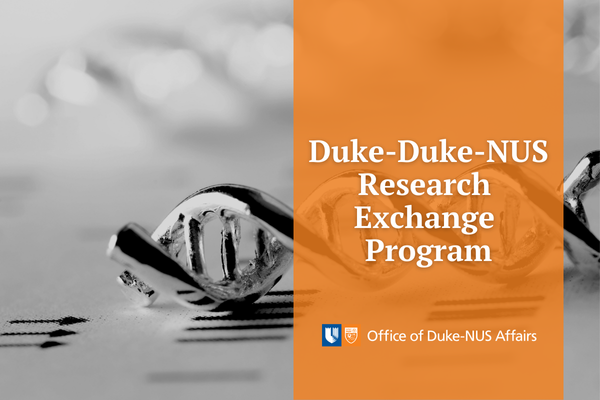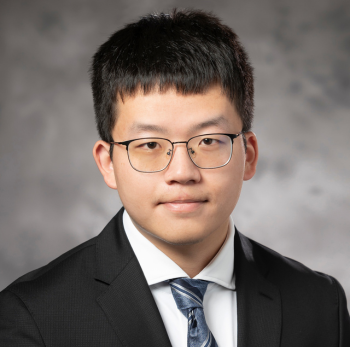Opening Doors to Global Research: Applications Open for the 2026 Duke-Duke-NUS Research Exchange Program

Applications are now open for the 2026 Duke-Duke-NUS Research Exchange Program. This fully funded 30-day opportunity allows PhD students and postdoctoral fellows in biomedical and related fields to conduct short-term research at Duke-NUS Medical School in Singapore.
For participants, a month can open a world of possibilities. The Duke-Duke-NUS Research Exchange Program is designed to broaden academic perspectives while offering early-career researchers hands-on collaboration with leading scientists, exposure to new research methods and the chance to expand their academic and professional networks.

A program that builds perspective
The exchange is short by design—a concentrated period that focuses on exposure and mentoring. Students gain insight into how clinical practices, research methods and career pathways differ between institutions and across countries.
For example, Dongrong Yang, a fifth-year Duke PhD candidate in medical physics, recently returned from Singapore, where he was mentored by Professor Melvin Chua, MD, PhD—clinician-scientist at Duke-NUS Medical School and the National Cancer Centre Singapore, and principal investigator of the Precision Radiotherapeutics and Oncology Program.
Yang’s research focuses on automated radiation therapy treatment planning, human-AI interaction and intelligent clinical systems. He applied to the program to see how radiation therapy is practiced outside the United States and to make his research more broadly applicable in international settings.
“In Singapore, I saw firsthand how physicians prescribe treatment, how physicists and dosimetrists approach planning and how guidelines differ,” he said. “That exposure helps me think about how to make my research more generalizable and useful across different institutions.”
Learning beyond the lab
Because the program is limited to 30 days, most participants focus on observation, relationship-building and idea exchange. For Yang, that meant shadowing a physician, attending group meetings and talking with peers about their work.
“I wasn’t just sitting at a desk—I was meeting people, shadowing clinical practice and presenting my own research,” he said. “It was about understanding different perspectives and seeing how similar problems are approached in different settings.”
His host, Chua, noted the value of the exchange for both sides. “Given the setup in my lab, I was sure he would get a broad clinical and research exposure to the possibilities, and inputs on how to sharpen his current projects,” he said.
Why it matters
Experiences like these not only expand technical knowledge but also provide clarity on career directions. For Yang, the month in Singapore highlighted how career paths for medical physicists differ internationally and gave him insight into where his skills might be applied in the future.
The exchange also created space for mentoring. As Chua reflected, “Importantly, it gave me an opportunity to interact with him and give him mentoring advice about his next steps.”
Yang put it simply: “The most valuable thing is the exposure. You get to see how research and clinical practice work in another country, and you meet people from all over the world. It’s a unique experience you can’t get if you only stay in one place.”
Be part of the next exchange
Whether you are a PhD student or postdoctoral fellow looking to expand your research horizons, or a faculty member encouraging students to pursue international collaboration, the Duke-Duke-NUS Research Exchange Program offers a meaningful opportunity.
Faculty participants echo this enthusiasm. As Chua put it: “Certainly happy to be involved again.”
Applications for the 2026 program are now open, and submissions must be received by October 17, 2025. For more about the Duke-Duke-NUS Research Exchange Program, visit the Office of Duke-NUS Affairs website or contact Program Coordinator Evan Dorner at evan.dorner@duke.edu.
*Stay connected with the latest from the Office of Duke-NUS Affairs—follow us on LinkedIn for news, highlights and stories from across our academic community.